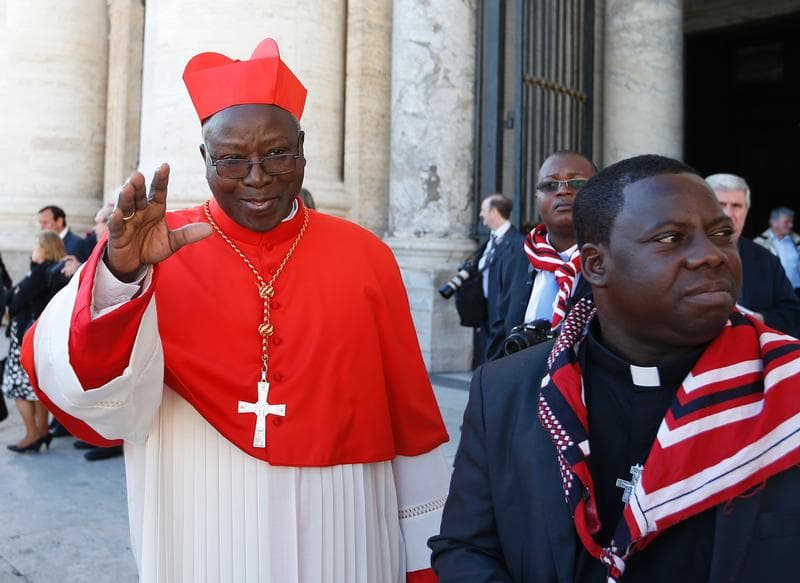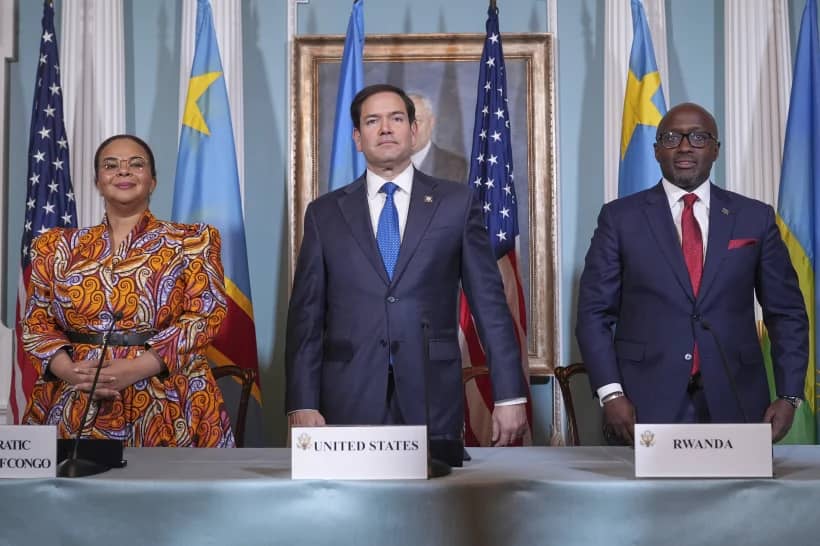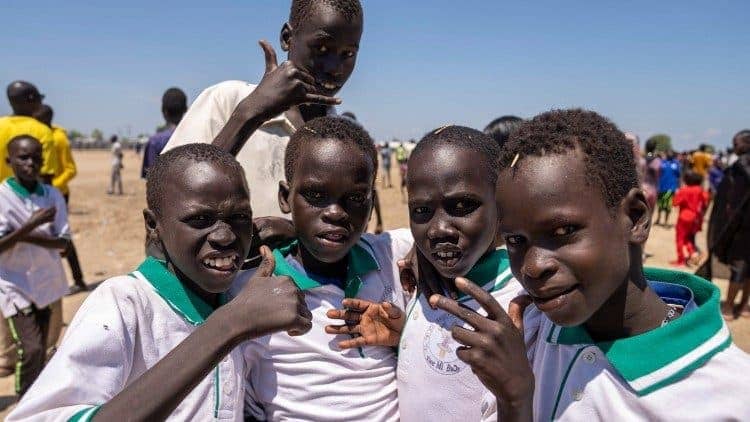ROME – Africa’s top prelate has hit back against the notion that clerical sexual abuse is a purely western problem, saying it happens on his home turf, too.
Speaking to Crux, Cardinal Philippe Nakellentuba Ouédraogo said: “Crimes of sexual abuse offend our Lord, cause physical, psychological and spiritual damage to the victims and harm the community of the faithful.”
Archbishop of Ouagadougou, Burkina Faso, Ouédraogo was elected president of the Symposium of Episcopal Conferences of Africa and Madagascar (SECAM) in July.
RELATED: Church in Africa celebrates 50 years of growth, mounting influence
The meeting in Kampala, Uganda, was SECAM’s 18th Plenary Assembly, and it marked the 50th anniversary of the pan-African bishops’ organization.
During the July gathering, the prelates discussed the rapid growth of Catholicism on the African continent, the role of young people, who compose roughly 60 percent of the population in Africa, challenges to evangelization, including tribal issues and the abuse of women and minors.
Noting how some have said that clerical sexual abuse is not a problem in Africa, Ouédraogo said “each society has its strengths and weaknesses. There are similarities and differences.”
“From this point of view, ‘marriage for all’ or the question of sexual abuse of minors does not arise with the same urgency in all societies on the planet. Thus, some people believe, not without reason, that sexual abuse of children is not as frequent in Africa as in Europe or America, for example,” he said.
“Does this mean that it does not exist in Africa? Far from it,” Ouédraogo said, insisting that sexual abuse does happen, not just to minors, but also to women.
During the plenary, specific mention was also made of Pope Francis’s new document, Vox estis lux mundi, which was released in May and outlines a new process for episcopal accountability in abuse cases, both for the crime and the cover-up, giving metropolitan archbishops a key role and requiring all dioceses in the world to set up reporting mechanisms.
“Peter’s successor took the true measure of the drama and undertook to help the ecclesial community to live a true repentance and an authentic, continuous and profound conversion of hearts through concrete and effective actions,” he said.
Insisting that the problem “concerns the whole Church,” Ouédraogo said concrete studies and recommendations are being made at the level of both national and inter-territorial bishops’ conferences.
Implementation of Francis’s new measures, Ouédraogo said, was discussed “at length” by African prelates during their plenary meeting, and as part of the follow-up, each individual bishops’ conference is required to inventory their own procedures and provide a report, including recommended solutions, to SECAM’s general secretary.
A synthesis of the plenary discussion on the issue will also be drafted by SECAM’s standing committee in order to both take stock of the situation and adopt concrete recommendations in light of Francis’s new measures, he said.
“There are many scourges to which children are subjected: Sexual abuse, child soldiers, trafficking in human beings. Children’s rights are being violated both in Africa and around the world,” Ouédraogo said.
“What Pope Francis’s Motu Proprio stipulates, namely, is the establishment of an appropriate ecclesiastical office in each diocese to enable reports of various cases of sexual abuse to be presented,” Ouédraogo said, adding that the document “must be extended, it seems to us, to these other scourges that also cruelly affect children.”
Speaking specifically of women, Ouédraogo said much of the plenary discussion on how to empower them and encourage their leadership in the Church and in society echoes a 1994 Special Assembly for Africa of the Synod of Bishops, which spoke out against cultural customs and practices “which deprive women of their rights and due respect.”
Bishops are seeking to both protect and promote the rights of women, he said, adding that the Church can play a “prophetic role” in “defending the rights of women and girls in African society,” such as their right to education, to the same life opportunities given to men, and the freedom to marry whom they choose, rather than being forced into arranged marriages.
Speaking of the goals and challenges of the Catholic Church in Africa, Ouédraogo said that looking to the future, key challenges are evangelization and the inculturation of the Church in Africa’s culturally and traditionally diverse context.
He also highlighted interreligious and intercultural dialogue as key challenges both within the Catholic Church, and with other religious communities, such as Islam, Judaism, Protestantism, and traditional African religions.
Current global issues such as migration, a lack of respect for life, damage to the environment, social communications and globalization are all issues he said that will make it more difficult to promote justice, peace and an integral human development moving forward.
However, “our greatest strength in Africa, Pope Benedict XVI, has said, is hope,” Ouédraogo said, adding that in Africa, “despite all the difficulties…It is this human hope that the theological virtue of hope comes to assume and fulfill. Faced with the immensity of the challenges to be met, it is therefore out of the question to get discouraged and desperate.”
He also praised the role of young people, who in Africa make up nearly 60 percent of the population.
“It is the present and the future of the Church and humanity,” he said, explaining that how to empower young people was a key point of discussion for African bishops during their plenary. “Hence the need for training in human, intellectual, doctrinal and spiritual values so that they can take their place and play their full role in society and in the Church.”
RELATED: African bishops applaud youth, women at close of high-stakes meeting
Referring to SECAM’s golden jubilee celebrations, Ouédraogo voiced his hope that the landmark anniversary “will deepen in lay faithful, consecrated persons and pastors our knowledge of Christ and strengthen our missionary zeal for the glory of God and the salvation of the world.”
“We have the reasonable presumption that this jubilee is, for the Church Family of God in Africa, a new missionary departure, in the sense that was understood by Pope Paul VI: ‘You Africans, you are now your own missionaries. You can and must have African Christianity,’” he said.
Follow Elise Harris on Twitter: @eharris_it
Crux is dedicated to smart, wired and independent reporting on the Vatican and worldwide Catholic Church. That kind of reporting doesn’t come cheap, and we need your support. You can help Crux by giving a small amount monthly, or with a onetime gift. Please remember, Crux is a for-profit organization, so contributions are not tax-deductible.














